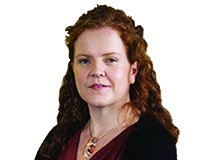 The mergers and acquisitions boom currently under way in Britain is leaving no sector untouched.
The mergers and acquisitions boom currently under way in Britain is leaving no sector untouched.
Even the newspaper publishing industry, which has long been the enfant terrible of corporate Britain, dogged by falling profits, plunging circulation, phone hacking scandals and an inability to make the internet pay, is finally getting some action.
This week Trinity Mirror said it was in talks to take over rival Local World in a £200m deal that will cement its position as the UK’s biggest local and regional newspaper group.
The proposed deal comes after Japan’s Nikkei newspaper empire surprised the market with its £844m swoop on the Financial Times Group, which is being sold by Pearson.
And some of the descendants of the most distinguished families in British and Italian industry, including the Rothschild and Agnelli dynasties, have also played their part taking control of The Economist.
This consolidation in the sector is only set to continue.
At a time when “new media”, such as Facebook and Google continue to expand rapidly – witness Facebook’s recent deal to prelet all of 1 Rathbone Square, W1 – “traditional” media firms are struggling to find a way forward.
Even profitable publishers, such as the Financial Times, are being pushed to find economies of scale and “synergies” in a drive to become global media “powerhouses”.
The FT first began collaborating with Nikkei in the late 1990s and part of the rationale for their tie-up is to further this co-operation while Nikkei hopes that the “pink’un” can help it to become global and scale up digitally.
The question remains, however, whether those “synergies” are enough to justify Nikkei paying a sum that represents a multiple of 35 times the FT’s earnings, or 41 times when tax is considered. And this for a takeover that does not even include the FT’s valuable South Bank HQ.
However, bankers and analysts believe that all publishing groups will be looking for acquisitions, either for strategic reasons or as a means of survival.
For example, Local World was itself formed in 2012 out of a consolidation of the Daily Mail; General Trust’s regional division, Northcliffe Media; and Iliffe News & Media. The publishing group mulled plans for a float earlier this year but it came to naught following a weak second-quarter print advertising performance across the industry.
Joining forces with Trinity Mirror makes sense because the publisher of the Daily Mirror already owns a near 20% equity stake in Local World. If the deal completes, the two can combine their portfolios of hundreds of regional newspapers, free and paid-for weekly and daily publications and websites.
By teaming up they will build up negotiating scale in local and regional advertising – a revenue source that has been decimated in recent years by the advance of market “disrupters” such as Zoopla, Rightmove and Autotrader.
A deal would also provide earnings accretions and help Trinity Mirror, which recently revealed an 8.7% decline in first-half revenues, improve its performance and plug a hefty pension deficit.
Rob Lynam, head of trading at MEC, part of Group M, the UK’s biggest media-buying network, told me this week that Trinity Mirror’s proposed deal reflected “much-needed” consolidation, given the parlous state of publishing.
Other mergers and acquisitions are likely. Johnston Press, another listed publisher, has indicated recently that the “mood music” was right and that Trinity Mirror may not stop at Local World as it was still in talks to buy Richard Desmond’s Express Newspapers group.
Given that the industry has been taking its own self-help medicine in the form of centralising print facilities, cutting jobs, and selling non-core assets, it can make headway now only through further consolidation and making online pay.
And, even if many M&A media bankers dismiss publishing as a sector in “managed decline”, consolidation may buy some time and provide enough of a runway to launch new digital-led business.
Deirdre Hipwell, mergers & acquisitions correspondent, The Times










